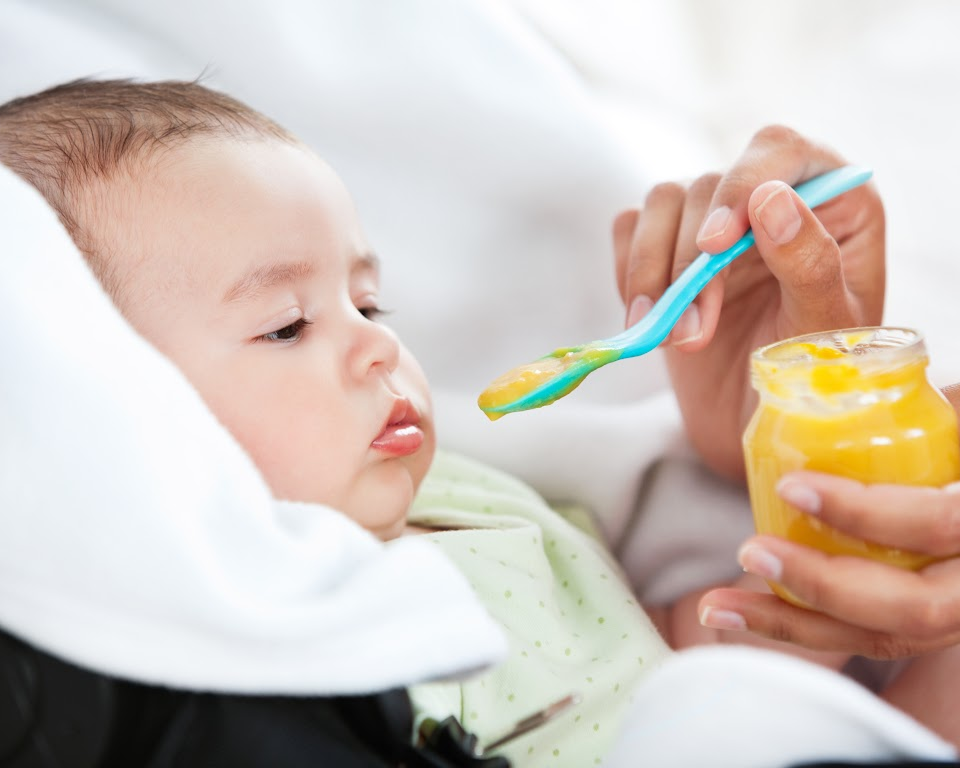Understanding how to communicate with a nonverbal autistic child is a challenge many parents, caregivers,…

Does Baby Food Lead to Autism? Facts Explored
Parents navigating the myriad milestones of early childhood often encounter questions about the safety and health impacts of nutrition choices. Among these concerns, some question whether can baby food cause autism, stirring conversations around baby food and autism risk. Despite the fears that arise in parental forums and discussions, science offers a grounding perspective.
Autism Spectrum Disorder (ASD) brings a spectrum of communication and behavioral traits to those it touches, yet its origins are widely accepted as genetic and environmental, not dietary. In an effort to demystify the links between baby food ingredients and autism, analyses in reputable science journals have repeatedly shown that the leap from the contents of baby food jars to autism diagnoses is unfounded. This introduction aims to reassure and educate, dispelling myths and equipping caregivers with facts.
While it is vital to scrutinize what little ones consume, there is no substantial evidence suggesting that the question of does baby food cause autism has any grounding in reality. Nevertheless, the diligence of parents and researchers alike propels us towards ever-safer feeding practices and a deeper understanding of ASD.

The Complex Etiology of Autism Spectrum Disorder
Unveiling the origins of Autism Spectrum Disorder (ASD) has proven to be a multifaceted endeavor, engaging scientists in a quest to understand the intricate interplay between genetics, environmental triggers, and neurological pathways. As parents and healthcare providers seek to demystify this condition, the query whether there’s a link between baby food and autism, and if nutrition plays a role in developmental disorders, remains a focal point of interest and concern.
Understanding the Role of Genetics and Environmental Factors
The intricate dance between innate genetic makeup and external environmental conditions presents a complex backdrop for the emergence of ASD. Prenatal environmental exposures, which include everything from dietary choices to pollutants, are scrutinized for their potential influence on a child’s developmental trajectory. Despite the probing question, “is there a correlation between baby food and autism?,” the current scientific consensus points towards a nuanced synergy of genetics and environment rather than isolated dietary factors.
Investigations into Brain Development and Immune System Connections
Researchers are deeply engrossed in exploring how early immune system interactions may shape the neurological architecture linked with ASD. Questions regarding how a child’s immune responses, potentially influenced by nutrition and environment, might relate to their neural development, drive the investigation into this condition which affects an estimated 1 in 54 children. Critical to these studies is elucidating the potential impact of various factors, including diet, on brain and immune system development.
Exploring the Gut-Brain Axis and Its Implications
- The role of gut microbiota in brain function and behavioral outcomes, which opens a new frontier in ASD research.
- How nutritional components in baby food could interact with the gut-brain axis and possibly influence neurodevelopmental outcomes.
- The ongoing debate about baby food and developmental disorders and the importance of scientific rigor in these investigations.
In conclusion, the determination of ASD’s etiology continues to challenge the scientific community, necessitating a broad and inclusive approach to research. While the dietary influence, specifically the role of baby food, within this spectrum ignites discussions, conclusive evidence has yet to be established, calling for continued examination and vigilance in understanding the myriad factors contributing to autism’s complex puzzle.
Can Baby Food Cause Autism?
With the surfacing of recent baby food and autism research, parents are increasingly concerned about what they feed their infants. Notable research spotlighting the baby food and autism connection has scrutinized various baby food ingredients for their safety and potential impacts on development.
Authorities like the FDA have identified that certain baby food brands, including Beech-Nut, Earth’s Best Organic, and Gerber, carried trace amounts of heavy metals, which are known to contribute to developmental delays and conditions such as ASD (Autism Spectrum Disorder) and ADHD (Attention-Deficit/Hyperactivity Disorder).
- Trace amounts of arsenic, lead, cadmium, and mercury have raised alarm bells, leading to a critical evaluation of baby food ingredients and autism.
- The prospect of heavy metal accumulation has prompted some families to seek legal recourse, particularly when they perceive a direct causative line to an ASD diagnosis.
- Despite these concerns, it is essential to understand that there is yet to be conclusive evidence directly linking baby food to autism development in children.
While the conversation around baby food and autism continues to evolve, the emphasis should be on nurturing infants with a well-balanced diet and promptly addressing any developmental concerns with medical professionals. It is the balanced approach, paired with informed consideration of baby food ingredients, that experts advocate for child health and well-being.

Although the quest for certainty continues, parents are encouraged to maintain an informed, vigilant stance on the latest findings concerning baby food safety and its implications for children’s health, including the potential risks associated with autism.
Nutritional Foundations and Their Impact on Early Childhood Development
Establishing healthy eating habits early in life sets the stage for a child’s physical and cognitive development. Well-balanced nutrition is critical, and the role it plays in mitigating the risk of developmental disorders, including autism, is increasingly underscored by scientific research. Paying attention to diet quality from the womb through infancy could be pivotal for lifelong health and wellbeing.
The Significance of Balanced Diets for Infants
Infants rely on nutrient-dense foods for their dramatic growth and development. Introducing a variety of textures and natural flavors through safe and healthy baby food encourages proper feeding habits and can reduce autism risk associated with nutritional deficiencies. A balanced diet during this critical period supports cognitive development and lays the groundwork for healthy dietary patterns later in life.
Importance of Breastfeeding in Infant Development
Breastfeeding is universally recommended for its comprehensive nutritional benefits and protective immunity factors. Its importance in bolstering brain development is significant, with studies suggesting that exclusively breastfed infants for the initial six months exhibit a lowered risk of developing autism. The biological design of breast milk perfectly supports infant growth milestones, reinforcing the importance of breastfeeding in the context of early childhood development.
Prenatal Nutrition and Its Effects on Fetal Development
Pregnancy is a critical window for providing the building blocks of life. The role of prenatal nutrition is crucial in supporting fetal brain development and reducing the future risk of developmental disorders. Essential nutrients supplied through a balanced diet and supplements such as prenatal vitamins are foundational for a healthy pregnancy outcome, potentially offering a shield against the spectrum of autism disorders.

- The role of Omega-3 fatty acids in cognitive development
- Vitamin D’s contribution to healthy brain function
- The long-term effects of iron levels in brain development
It’s essential for healthcare providers to guide expectant and new mothers on optimal dietary choices that foster robust prenatal nutrition and development. By prioritizing maternal health and nutrition, we contribute positively to the prevention of future risks, laying a strong foundation for the next generation’s wellbeing.
Conclusion
Through rigorous research and scientific scrutiny, the notion that baby food causes autism has been thoroughly examined, and the results have been consistent: there’s no substantial evidence linking baby food ingredients to autism spectrum disorder (ASD). The fears surrounding the idea that baby food and autism are connected have prompted numerous studies, but the scientific consensus continues to uphold the safety of commercially available baby foods in the context of autism risk.
Reviewing the Evidence: Lack of Link Between Baby Food and Autism
Parents can breathe a sigh of relief knowing that the fear can baby food cause autism has been displaced by evidence-based findings. When addressing concerns about this sensitive subject, it’s imperative to acknowledge the seriousness of the question, does baby food cause autism, and the peace of mind accurate information provides. The baby food and autism connection has been a topic of scrutiny, but to date, research negates a direct link, supporting the safe inclusion of these products in an infant’s diet.
Recommendations for Parents and Caregivers Concerned About ASD
For those seeking guidance on how to best support their child’s development, recommendations for avoiding autism risk include adhering to established dietary guidelines that ensure infants receive a broad spectrum of nutrients. This encompasses following best practices for breastfeeding and introducing solid foods at appropriate milestones. In addition, staying alert to food safety notifications, particularly regarding heavy metal exposure, remains a vital component of nurturing a robust developmental environment for children.
Future Research Directions in Autism and Nutritional Factors
The pursuit of understanding autism’s complexities continues unabated, with the scientific community delving deeper into potential associations between nutrition and neurological development. Upcoming studies promise to shed more light on autism’s etiology and may even introduce novel approaches for prevention or intervention. This ongoing research underscores the commitment to discerning and mitigating any factors that may influence the risk or manifestation of ASD in future generations.
FAQs
Can baby food cause autism?
Extensive scientific research has shown no significant connection between baby food and the risk of developing autism in children.
Does the timing of introducing solid foods into a baby’s diet affect the risk of ASD?
Studies suggest that neither specific ingredients in baby food nor the timing of introducing solid foods is linked to an increased risk of autism spectrum disorders (ASD).
What role do genetics and environmental factors play in the development of autism?
Autism spectrum disorder is believed to have its roots in a combination of genetic predispositions and various environmental influences, which might include prenatal exposures to different substances and stresses.
Are there concerns about heavy metals in baby food?
Yes, some reports have found trace levels of heavy metals such as arsenic, lead, cadmium, and mercury in certain baby food brands, which can contribute to developmental delays. However, no direct causation between these contaminants in baby food and autism has been established.
How important is a balanced diet during early childhood in relation to autism risk?
A balanced diet is paramount for normal growth, cognitive development, and potentially reducing the risk of developing ASD. Exclusive breastfeeding for at least six months has been correlated with decreased ASD risks.
What should parents and caregivers do if they are concerned about baby food and ASD?
Parents and caregivers should focus on providing a diet that includes a range of nutrients and following recommended guidelines on breastfeeding and the timing of introducing solids. Vigilance about food safety alerts, such as potential heavy metal contamination, is also advisable, along with routine developmental screenings for early signs of ASD.
Are there any connections between baby food ingredients and developmental disorders?
Current evidence does not indicate a direct link between baby food ingredients and developmental disorders, such as ASD. Continuous research efforts are being made to explore possible connections and the broader factors that contribute to these conditions.
What are the recommendations for prenatal nutrition to prevent developmental disorders?
Healthcare providers often recommend that expectant mothers maintain a nutritious diet and consider taking prenatal vitamins to support fetal development and potentially lower the risk of developmental disorders like autism.
Is there ongoing research into baby food and its potential connection to autism?
Yes, the scientific community continues to investigate the relationship between nutrition, including baby food, and neurodevelopmental issues. While no substantive links have been found, emerging research may provide new insights into autism’s etiology and intervention strategies.
What are the best dietary practices for infants to ensure proper development and lower the risk of ASD?
The best practices include breastfeeding exclusively for at least the first six months, introducing a variety of solid foods at appropriate developmental stages, and ensuring a nutritious diet to support overall infant development and well-being.



This Post Has 0 Comments